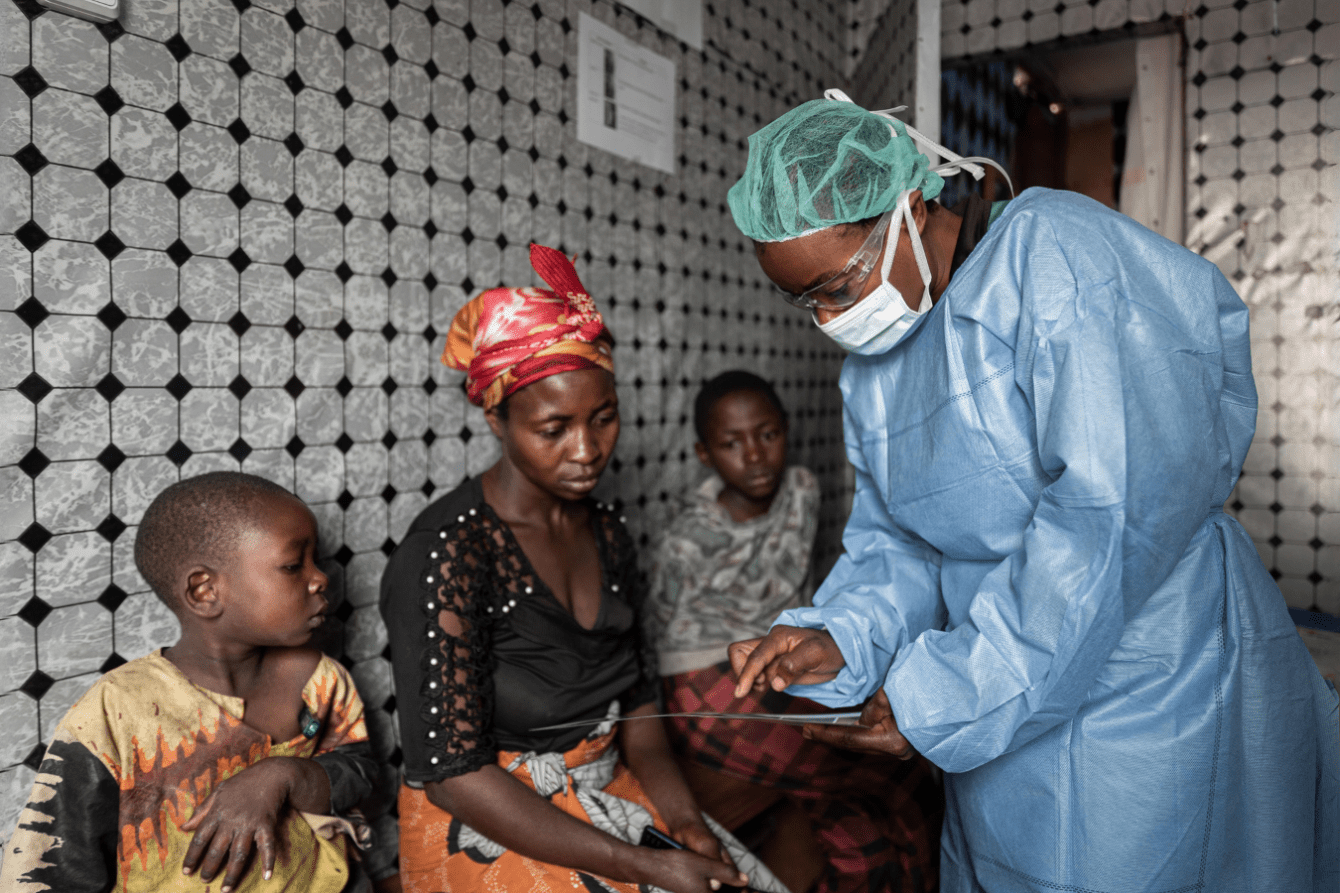In 2024, as the world was shaken by violent conflict, disease outbreaks, and natural disasters, Doctors Without Borders/Médecins Sans Frontières (MSF) teams continued to risk their lives to provide essential medical care.
We are among the first to arrive and last to leave when an emergency strikes. That’s because MSF is constantly pushing the boundaries of humanitarian aid to find new solutions to some of the most intractable health problems of our time.
Your dedication to our work inspires our teams as they work to save lives in more than 70 countries worldwide. Here is a snapshot of how you are catalyzing change for our patients.
Innovating malnutrition treatment with ready-to-use therapeutic foods (RUTF)
As civil war in Sudan intensified this year, a cascading displacement and humanitarian crisis followed, leaving more than 11 million people without basic needs like food, clean water, and medical care. From January to September of this year alone, MSF has treated 39,011 patients for malnutrition, many of whom are children and pregnant people.
Key to MSF’s strategy to treat malnutrition is the widespread use of ready-to-use therapeutic foods, or RUTF. This treatment is shelf-stable and contains the right balance of nutrients, allowing us to more effectively fight against malnutrition. This approach to treating malnutrition has resulted in cure rates of over 90 percent, and can reduce the need for inpatient care.

Developing an adaptive response to mpox in DRC

In 2024, an outbreak of mpox (formerly known as monkeypox) in Democratic Republic of Congo (DRC) spread rapidly amid devastating violent conflict. Due to the resulting displacement, thousands of people living in crowded, makeshift refugee camps were vulnerable to an infectious disease like mpox spreading.
MSF responded rapidly to this outbreak, while adapting our efforts as we monitored how the mpox epidemic developed. This multi-pronged approach includes laboratory analysis, case monitoring, support for patient isolation and self-isolation, and raising awareness about the disease in communities. We’re also advocating for exponentially increased access to the mpox vaccine by supporting the World Health Organization’s appeal to governments and institutions to make funds available for a sufficient response to the outbreak.
Scaling up mental health care for migrants and asylum seekers

When a natural disaster strikes or a war breaks out, MSF is often the first to arrive to provide care. We are also often the last to leave, staying behind to offer mental health care to people struggling in the wake of an emergency.
When a horrific flood struck Brazil in April of 2024, we offered remote training on mental health first aid to local professionals assisting flood victims. Mental health support is an integral part of emergency activities, along with our medical consultations.
As thousands of migrants and asylum seekers travel on foot across Central America in hopes of reaching the southern US border, many of them face risks of disease, dehydration, violence, and sexual assault.
In 2024, MSF provided medical-humanitarian care to thousands of people along migration routes. Our teams included mental health professionals trained in psychological first aid, who were able to address the issues migrants faced on their dangerous journeys.
